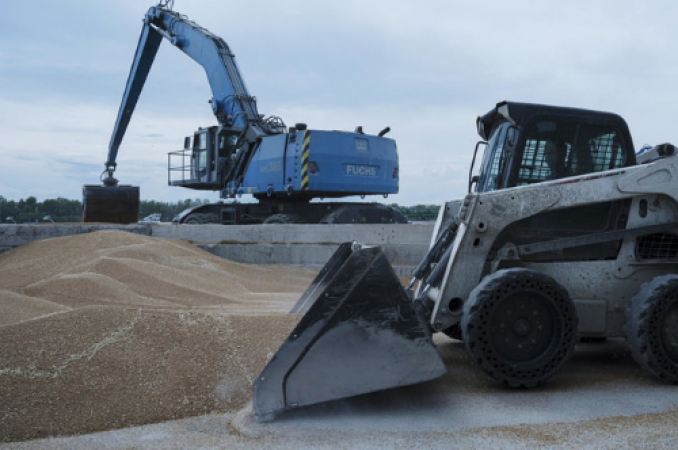
Warsaw: Poland has recently announced its intention to extend a ban on grain imports from Ukraine, despite the ban's scheduled expiration on September 15.
This decision, ostensibly aimed at safeguarding the interests of Polish farmers, has raised concerns and garnered criticism from Ukraine, a significant grain exporter.
While the European Union (EU) has granted approval for Poland's ban, it has simultaneously called on Poland to reconsider its stance, citing potential damage to Poland-Ukraine relations and disruption of global food markets.
Also Read: Italy Grapples with Surging Migrant Arrivals, Calls for EU Support
The Polish government's primary argument in favor of extending the ban hinges on the protection of its domestic agricultural sector. Ukrainian grain exports have been significantly impacted by the ongoing Russian invasion, and Polish farmers are apprehensive that an influx of cheap Ukrainian grain could undermine their own market prices.
This concern underscores the delicate balance between safeguarding national agricultural interests and maintaining diplomatic relations.
While the EU has given its blessing to Poland's grain import ban, it has also expressed reservations and urged Poland to reconsider the decision.
Also Read: V&A Signs this Historic Deal with Yemen
The EU's stance is grounded in concerns that this ban could strain relations between Poland and Ukraine, two neighboring nations with complex historical ties. Moreover, the ban has the potential to disrupt global food markets, a consequence that has not gone unnoticed on the international stage.
The Polish ban on Ukrainian grain imports was originally imposed in June 2023, invoking considerable debate and raising questions about the potential ramifications for Ukraine's economy, which heavily relies on grain exports. The ban specifically targets wheat, corn, rapeseed, and sunflower seeds, all integral components of Ukraine's agricultural exports.
Ukraine's significance as a major grain exporter cannot be overstated. The country's grain exports play a pivotal role in the global food supply chain. Thus, any restrictions on these exports have far-reaching implications, not just for Ukraine but also for the wider world.
The dilemma faced by Poland encapsulates a broader challenge faced by nations worldwide: how to strike a balance between safeguarding domestic agricultural interests and maintaining diplomatic relations, particularly with neighbors and trading partners.
The delicate dance of preserving the livelihoods of domestic farmers while honoring international trade commitments is a complex one.
The European Union, recognizing the nuanced nature of this issue, has endeavored to encourage dialogue and diplomacy between Poland and Ukraine.
The EU's insistence on Poland reconsidering its decision underscores the importance of fostering cooperation among member states and neighboring nations.
The extension of the ban on Ukrainian grain imports by Poland has undoubtedly cast a shadow over Ukraine's economic prospects, especially in the face of an already challenging geopolitical backdrop. The potential repercussions for global food markets further highlight the interconnectedness of the world's economies.
Also Read: Latvia Mobilizes Military to Address Soaring Migrant Influx at Belarus Border
As the situation evolves, it remains uncertain whether the Polish government will ultimately reconsider its decision. However, this episode serves as a vivid illustration of the multifaceted challenges facing nations as they grapple with the need to protect their agricultural sectors and uphold international relationships.
It also underscores the delicate task of balancing national interests with broader diplomatic considerations, ultimately impacting both domestic and global dynamics.